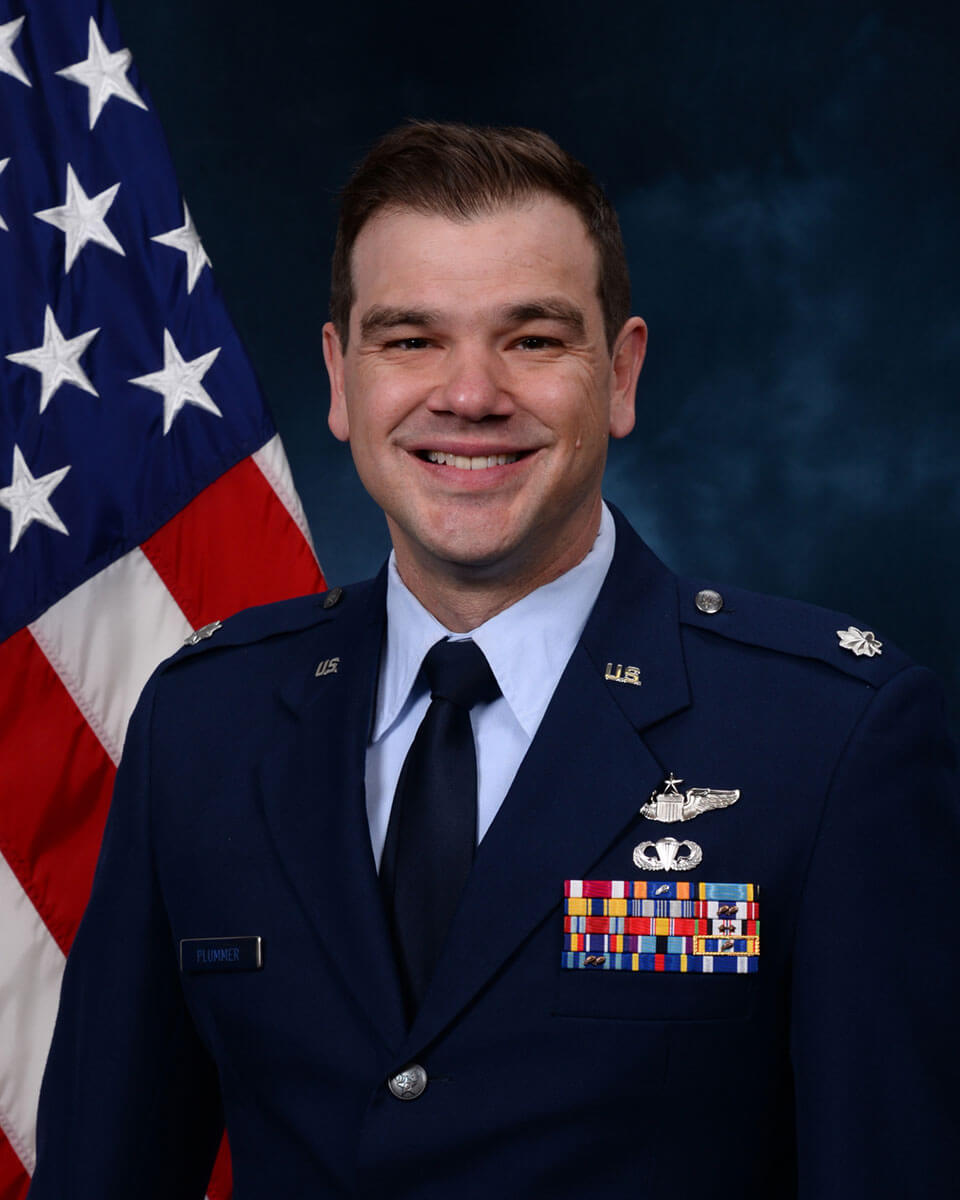Lieutenant Colonel Michael K. Plummer
Assistant Professor of Physics

Contact Information
Bio
Lieutenant Colonel Michael K. Plummer is an Assistant Professor of Physics in the Department of Physics and Meteorology at the U.S. Air Force Academy. He leads a team of cadet researchers investigating brown dwarfs, exoplanet atmospheres, planetary formation, and space situational awareness. Prior to joining the Academy Faculty, Lt Col Plummer served as an Air Force pilot in numerous operational and training aircraft. His first Air Force assignment involved designing and optimizing control systems for NASA Crew Launch Vehicles.
Education
Doctor of Philosophy, Astronomy, The Ohio State University
Master of Science, Astronomy, The Ohio State University
Master of Science, Mechanical Engineering, Rice University
Bachelor of Science, Mechanical Engineering, United States Air Force Academy
Air Command and Staff College, Correspondence
Squadron Officer School, Maxwell Air Force Base, Ala.
Professional Experience
Assistant Professor of Physics, United States Air Force Academy
Doctoral Researcher at The Ohio State University, Columbus, Ohio
Instructor of Physics, United States Air Force Academy
Air Force Pilot in C-146/C-130J/T-53/T-44C/T-6A Aircraft
Charles Stark Draper Laboratory Research Fellow, Clear Lake, Texas
Honors & Awards
Humanitarian Service Medal, 6 Air Medals, 2 Aerial Achievement Medals, 3 Meritorious Service Medals, Air and Space Commendation Medal, Air and Space Achievement Medal, 3 Afghanistan Campaign Medals, NATO Medal
Distinguished Graduate (Top 10%), United States Air Force Academy
Distinguished Graduate (Top 10%), Squadron Officer School
John T. McGrath Award, Outstanding Contributions to USAFA Department of Physics
Publications
M. K. Plummer, J. Wang, É. Artigau, R. Doyon, and G. Suárez, “Atmospheric Waves Driving Variability and Cloud Modulation on a Planetary-mass Object,” The Astrophysical Journal, vol. 970, no. 1, 62, p. 62, Jul. 2024.
M. K. Plummer and J. Wang, “Mapping the Skies of Ultracool Worlds: Detecting Storms and Spots with Extremely Large Telescopes,” The Astrophysical Journal, vol. 951, no. 2, 101, p. 101, Jul. 2023.
M. K. Plummer and J. Wang, “A Unified Spectroscopic and Photometric Model to Infer Surface Inhomogeneity: Application to Luhman 16B,” The Astrophysical Journal, vol. 933, no. 2, 163, p. 163, Jul. 2022.
E. M. Albrecht, A. M. Jensen, E. G. Jensen, et al., “Near-Simultaneous Observations of a Geosynchronous Satellite Using Two Telescopes and Multiple Optical Filters,” Journal of the Astronautical Sciences, vol. 69, no. 1, pp. 120–138, Feb. 2022.
M. F. Pirozzoli, L. A. Zimmerman, M. Korta, et al., “Calibration, sensitivity analysis, and demonstration of a basic polarimeter for artificial satellite observations,” Advances in Space Research, vol. 69, no. 1, pp. 581–591, Jan. 2022.